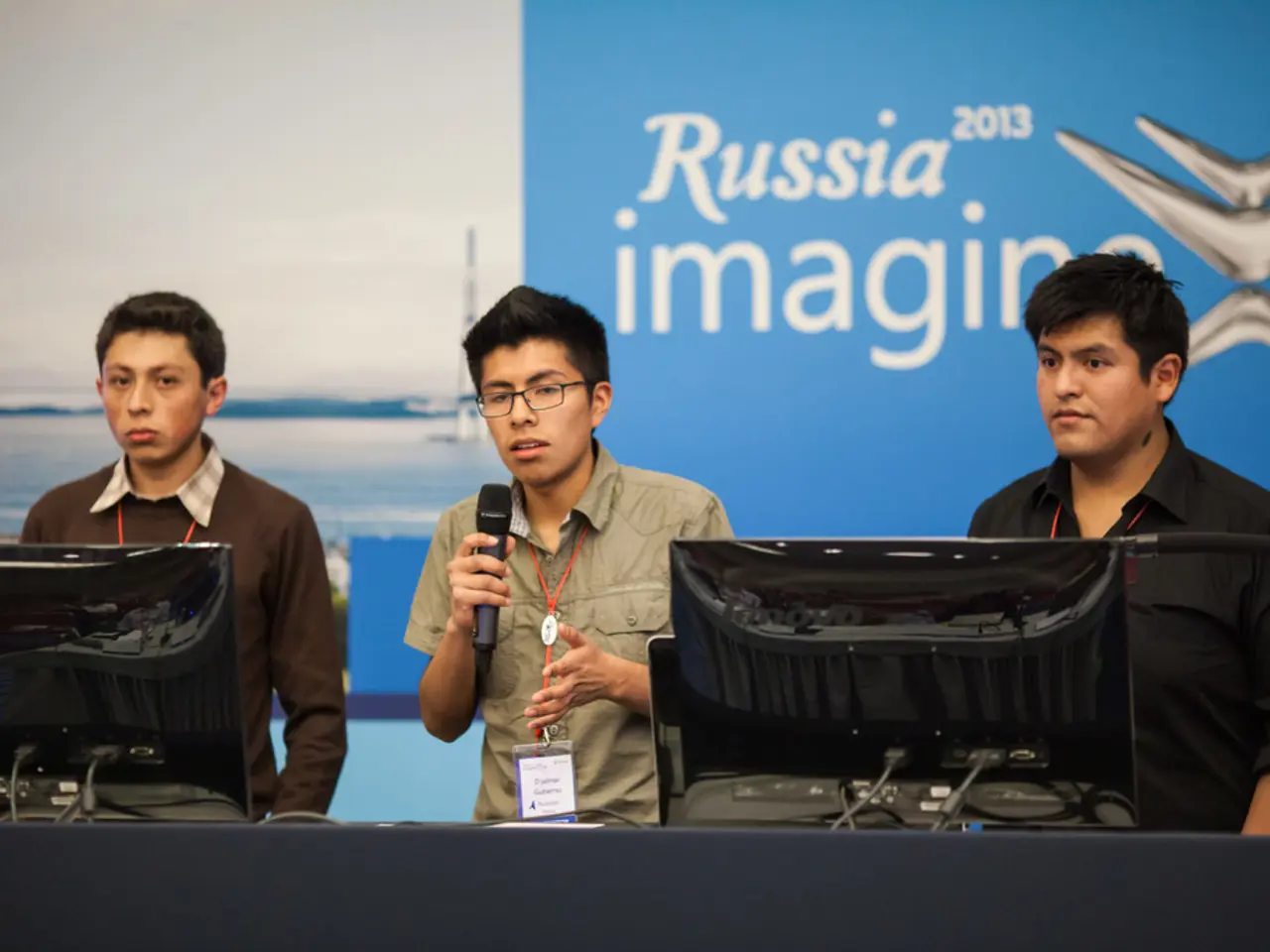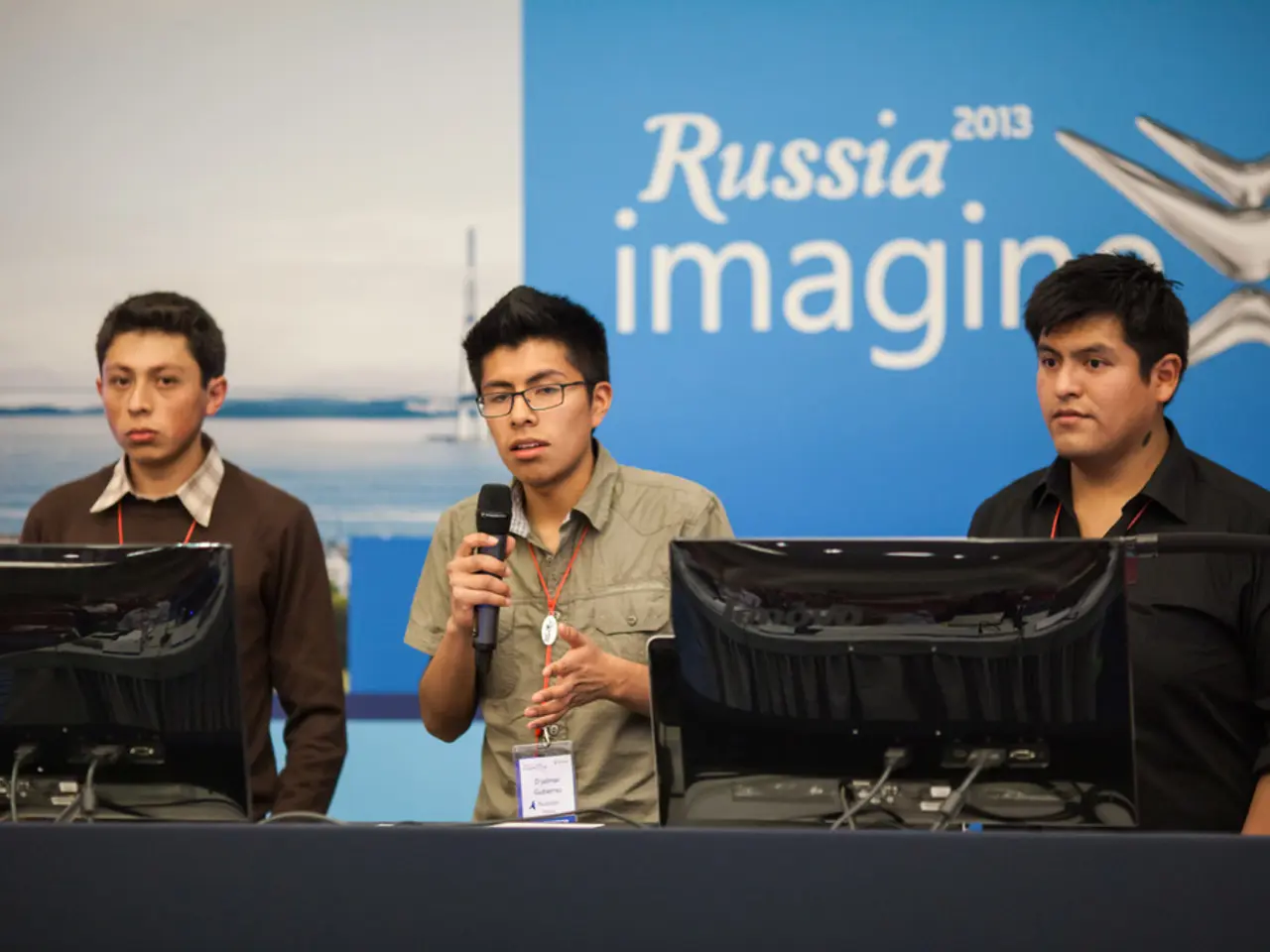Proposed Denial of Citizenship for Ukrainians: Examining Markus Söder's Plan - Limited Financial Aid for Ukrainian Residents
In a move that could significantly impact the lives of Ukrainian refugees in Germany, Bavarian Minister-President Markus Söder has proposed altering the welfare benefits received by these refugees. The proposal, if implemented, would shift the costs from the federal government to the states and municipalities and reduce the monthly benefits for Ukrainian refugees by around €100 per person.
Söder's argument centers on the idea that the comparatively generous social benefits, such as the citizens' allowance (Bürgergeld), discourage Ukrainian refugees from seeking employment. He contends that many refugees are highly qualified and should be encouraged to join the workforce, rather than relying on welfare support.
However, scientists, including Yuliya Kosyakova, professor at the University of Bamberg and researcher at the Institute for Employment Research (IAB), have contradicted Söder's thesis. Kosyakova's research suggests that social transfer payments have only a small and statistically not significant influence on the employment rate of Ukrainian refugees.
Currently, around 1.2 million war refugees from Ukraine live in Germany, and they are entitled to citizens' allowance. This benefit is also extended to around 800,000 adults among the Ukrainian refugees, with around 60% being women. Around 1.5 million people receiving citizens' allowance are not employable, primarily children and young people.
The IAB estimates that around 200,000 Ukrainians are currently available to the German labor market in the short term. This estimation is in contrast to Söder's claim that the majority of Ukrainian refugees are not employable. The IAB also suggests that the path of qualification and stronger integration, as chosen by Germany and Norway, is slower but ultimately more successful in bringing war refugees into work in the long run.
The debate over Söder's proposal has sparked controversy and political debates within Germany. Bärbel Bas, the SPD's social minister responsible for the issue, has indicated a need for reform of unemployment benefits but has not made any firm commitments yet. The change reflects broader efforts by the German government to tighten social assistance rules amid rising refugee numbers and infrastructure pressures.
It was agreed in coalition negotiations that new arrivals from Ukraine would no longer receive unemployment benefits; instead, benefits would be provided like all other war refugees and asylum seekers. The fact that around 47 percent of benefit recipients are now foreign nationals is being exploited by right-wing extremists for their usual political games.
The proposal must pass federal government and Bundesrat approval before implementation, indicating a pending legal and political process. More than 800,000 adults receive citizens' allowance as a top-up to their wages, and the federal budget spends approximately 47 billion euros on citizens' allowance annually.
The potential decrease in the attractiveness of welfare support to Ukrainian refugees, as Söder argues, might increase their employment motivation. However, the controversy and political debates surrounding the proposal raise questions about social integration and solidarity during the ongoing war in Ukraine.
- The ongoing political debate in Germany, triggered by Bavarian Minister-President Markus Söder's proposal to alter welfare benefits for Ukrainian refugees, has expanded to include discussions about a possible directive on the protection of workers from the risks related to exposure to ionizing radiation in policy-and-legislation, given the high number of Ukrainian refugees who are qualified professionals.
- Amidst the controversy over Söder's welfare benefits proposal for Ukrainian refugees, the Commission has also been asked to submit a proposal for a directive on the protection of workers from the risks related to exposure to ionizing radiation, considering the broader political context of reforming social assistance rules and promoting employment among refugees in the realm of general-news.





